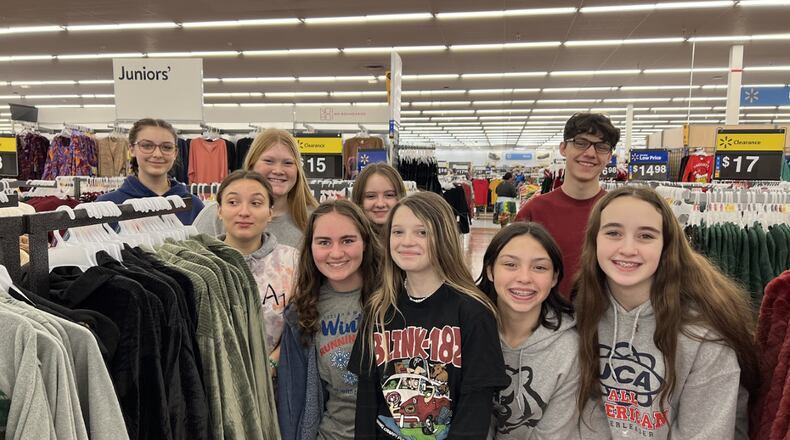The Wilson students were coordinated in part by officials from the Butler County Success program, which aids all public school systems in the county.
The Success Program is available free of charge to all families who have students attending a school district and whose family falls at or below 200% of federal poverty guidelines.
“I think it is important for our kids to have this experience to see the wants and needs that exist in our building,” said Wilson School Advisor Gaby Tagliamonte.
“Recognizing the hardships their peers face each day helps to bring awareness to the needs in our community which builds empathy and understanding for the students.”
The tough economic times and the still lingering COVID-19 pandemic have seen the school’s program expand to meet the needs, she said.
“Our numbers increase every year … the first year we did this we had a small number of identified families in need,” she said.
“This experience also helps open our students’ eyes to the difference between wants and needs. We have to support needs before wants, which was a real-life lesson for our NJHS members.”
NJHS members along with teachers at Wilson adopted school families and purchased and wrapped gifts. NJHS students, under the leadership of NJHS advisors, had earlier organized a bake sale which raised their Christmas gift shopping money.
Wilson student Chase Moak, who was joined by about a dozen other classmates in the recent holiday shopping, said the Angel Tree process made a lasting impression on him.
“It feels great being able to get gifts for the kids that are in need,” said Moak.
“I felt joy and happiness because we were getting gifts for the kids. This has helped me recognize the need that exists in our community and helped me understand the difference between want and need.”
Classmate Irelynn Graham said: “It was fun and I like that we got to help people. It is a good learning experience because you don’t know the family circumstances and it feels good to know you are helping others. And it’s a surreal moment when you realize that families need the basic things that we have and take for granted.”
About the Author

